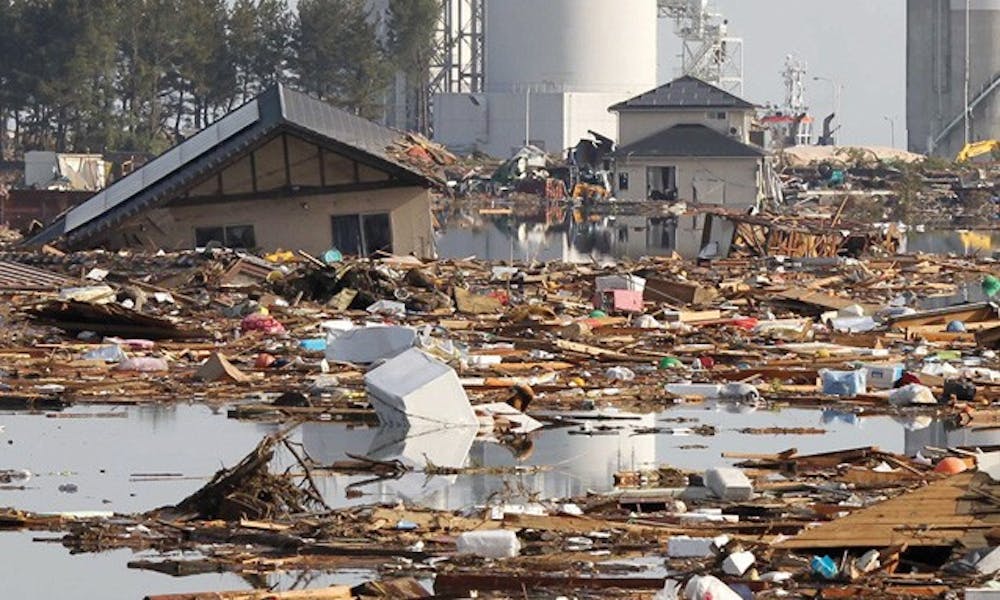The University has confirmed that all members of the Duke community known to be located in Japan are safe, administrators said.
Since Friday’s devastating 8.9 magnitude earthquake, the University has been engaged in an continuous effort to ensure all students and faculty in Japan are accounted for, said Vice President for Human Resources Kyle Cavanaugh, Duke’s emergency coordinator. The earthquake generated a tsunami that toppled buildings, devastating the country and damaging nuclear reactors.
In Japan there are 36 Fuqua School of Business students, seven Marine Lab program students on a trip to Japan, three students studying abroad and three members of the faculty, Cavanaugh said.
On campus, the International House has reached out to 60 students with Japanese citizenship or contacts in the country. Some members of the Duke community are also already discussing ways to help the nation, said Dean of Students Sue Wasiolek.
“There has been a very coordinated effort across lots of different offices at Duke ranging from student affairs to the international office to our police department to the various programs such as Fuqua,” Cavanaugh said. “Each of those has played an immediate and an ongoing role in identifying [Duke people in Japan].”
Junior Mario Parks was in Tokyo when the earthquake’s first aftershocks hit. In an e-mail, he described the scene as chaotic yet strangely normal.
“Many people ran out into the streets, traffic stopped, and there was a strange sense in the air,” he said. “It wasn’t necessarily one of danger, but of confusion.”
Parks noted that he was unsure how to react since he had never experienced a similarly strong earthquake. He added that the public’s anxiety faded and the situation soon returned to normal. Despite the chaotic scene, Parks said that he does not plan to cut his study abroad experience short.
“For now, I’ll be staying here,” he said. “I don’t see the need to leave Japan. I’ll just try to prepare as much as possible and wait it out like most people.”
Natsuki Sakata, a student at Tokyo University with a number of friends at Duke, said Friday’s earthquake affected her emotionally more than previous ones have. She was also in Tokyo when the disaster struck.
“Being in Japan, we are all used to earthquakes, so we were all like, ‘Oh there’s another earthquake,’” she wrote in an e-mail. “But [the tremors] went on for a long time, and we thought it was strange, and that was when [we realized] the big one came.”
Some faculty who have cultural ties to Japan are struggling to cope with the earthquake’s emotional aftershocks, as well. Japanese native Hitomi Endo, associate professor of the practice of Asian and Middle Eastern studies, said that even looking at the images of the disaster on television is difficult.
“The damage seems too extensive and beyond our imagination. It is heartbreaking to see the pictures and images of earthquake-hit areas,” she wrote in an e-mail. “My thoughts and prayers are with those affected by the disaster, and I hope the situation in the Tohoku region improves soon.”
Simon Partner, associate professor of history, has relatives in Japan who endured the tragedy.
“My wife described experiencing the quake from the 14th floor of a high rise and then seeing the oil refineries in Tokyo Bay [explode] into flames,” he wrote in an e-mail.
This earthquake is one of the biggest in Japanese history, Partner said. The last major quake, which occurred in 1995 in the city of Kobe, killed more than 6,000 people. But estimates of the death toll from the most recent earthquake—which have continued to grow—are expected to exceed that of the Kobe earthquake.
“There are still many unknowns, most notably the possible nuclear meltdown which would have global consequences,” Partner said. “Other possible dire short-term consequences [include] a financial panic or another major earthquake. The potential for widespread chemical contamination from factory fires is high. The long-term cost to Japan will be huge—probably hundreds of billions of dollars.”
Partner said he believes that despite future risks, the country will return to a state of normalcy sooner rather than later, noting that Japan is a resilient nation.
Get The Chronicle straight to your inbox
Signup for our weekly newsletter. Cancel at any time.

